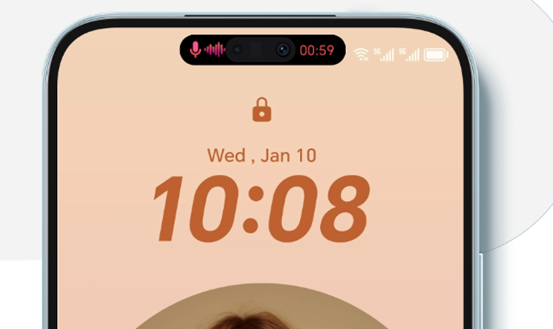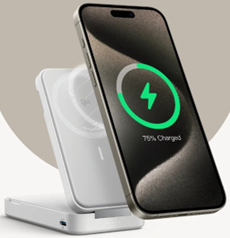Now our smartphones hold vast amounts of
personal information, ensuring their security is more important than ever. From
sensitive data to private conversations, smartphones can be targets for cyber
threats and unauthorized access. Fortunately, there are several strategies you
can employ to enhance your smartphone's security features. Here’s a guide to help you secure your device
and protect your information.
Enhance Your Smartphone's
Security Features Easily
Use Strong
Passwords and Biometric Authentication
The first line of defense for your
smartphone is a strong password or PIN. Avoid using easily guessable
information such as birthdays or sequential numbers. Instead, create a unique
password that combines letters, numbers, and symbols. Many modern smartphones
like the HONOR 200 Lite offer biometric features like fingerprint scanners and facial
recognition. These methods add an extra layer of security, making it harder for
unauthorized users to access your device. Enable these features in your
security settings for added protection.

Keep Your
Software Updated
Regular software updates are crucial for
maintaining the security of your smartphone. Manufacturers frequently release
updates that address vulnerabilities and improve performance.
Enable Automatic Updates: Most smartphones offer an option to enable automatic updates for
both the operating system and apps. This ensures that you’re always using the latest versions,
equipped with the latest security patches that protect against threats.
Check for Updates Regularly: Even with automatic updates enabled, it’s good practice to manually check for
updates periodically. Go to your settings and look for the software update
option to ensure your device is fully protected.
Install
Security Apps
While smartphones come with built-in
security features, additional security applications can enhance your protection
further.
Antivirus Software: Consider installing reputable antivirus software that can scan your
device for malware and protect against potential threats. These apps often
provide real-time protection and can alert you to suspicious activity.
VPN (Virtual Private Network): Using a VPN adds an extra layer of security when browsing the
internet, especially on public Wi-Fi networks. A VPN encrypts your internet
connection, making it difficult for hackers to intercept your data.
Be Cautious
with App Permissions
Every app you install on your smartphone
requires certain permissions to operate. It’s important to review these permissions to ensure that you are not
granting access to sensitive information unnecessarily.
Review Permissions Regularly: Go to your phone’s settings to see what permissions each app has. If an app requests
access to your contacts, camera, or location but doesn't need it for its
functionality, consider revoking those permissions or uninstalling the app.
Only Download Trusted Apps: Stick to official app stores like the Google Play Store or Apple
App Store. These platforms have security measures in place, reducing the risk
of downloading malicious applications. Always check app reviews and ratings
before downloading.

Enable
Two-Factor Authentication (2FA)
Two-factor authentication provides an
additional layer of security by requiring a second form of verification in
addition to your password. This can be in the form of a text message code, an
authentication app, or a fingerprint.
Set Up 2FA on Important Accounts: Enable 2FA for accounts that contain sensitive information, such as
banking apps or email services. Most major services offer this feature, making
it relatively easy to set up.
Use Authentication Apps: Consider using authentication apps like Google Authenticator or
Authy. These apps generate time-sensitive codes that enhance security without
relying on SMS, which can be vulnerable to interception.
Secure Your
Wi-Fi Connections
Public Wi-Fi networks can pose significant
security risks. When connecting to unfamiliar networks, take precautions to
protect your data.
Avoid Public Wi-Fi for Sensitive
Transactions: If possible, refrain from conducting
sensitive activities—like online banking—over public Wi-Fi. Use your mobile data or a secure connection
instead.
Turn Off Automatic Connections: Disable the setting that automatically connects your phone to
available Wi-Fi networks. This will prevent your device from joining
potentially insecure networks without your knowledge.
Conclusion
Enhancing
your smartphone's security features is not just about installing a few apps or
enabling basic settings; it’s about
taking a comprehensive approach to protect your personal information from
potential threats. By using strong passwords, enabling biometric
authentication, keeping your software updated, and carefully managing app
permissions, you can significantly reduce the risk of unauthorized access.
Additionally, installing security apps, enabling two-factor authentication, and
securing your Wi-Fi connections add extra layers of protection. By following
these best practices, you can ensure that your smartphone remains a secure and
reliable tool for managing your personal and professional life.



